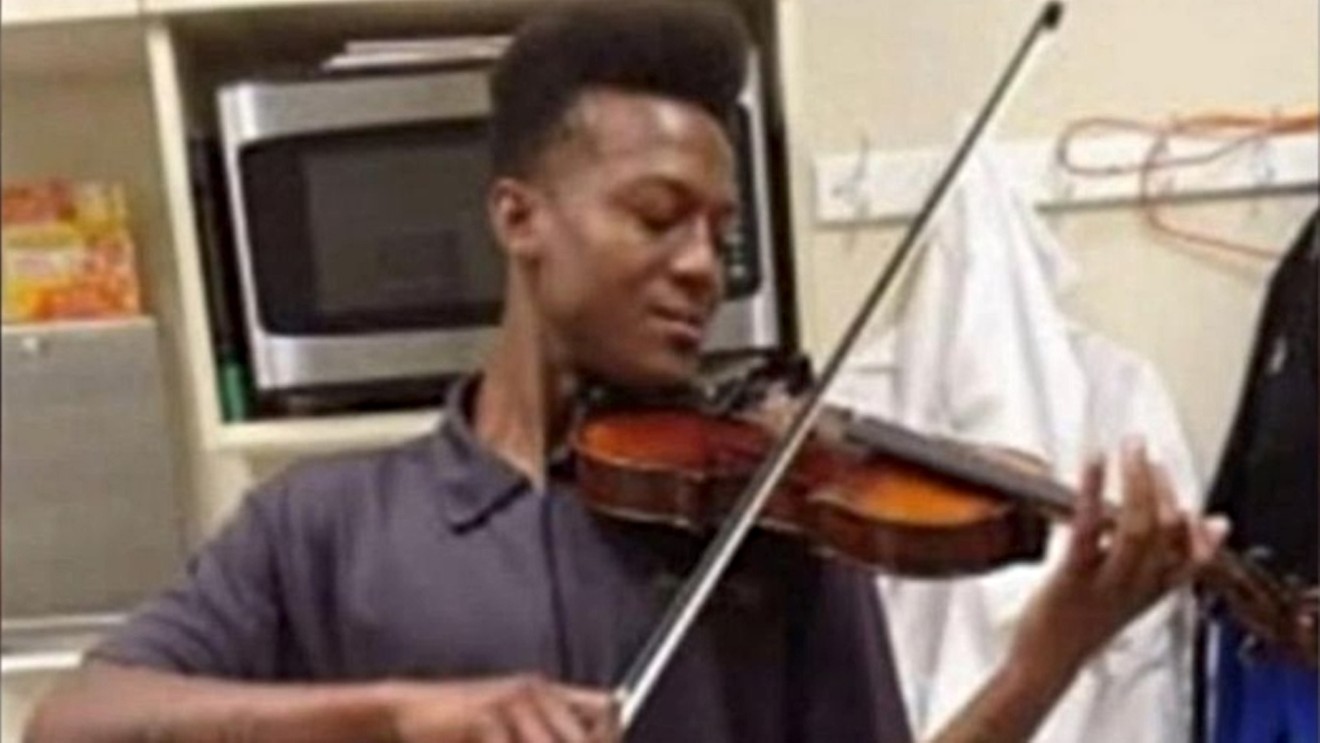On August 30, 2019, Elijah McClain was taken off life support, six days after a brutal encounter with members of the Aurora Police Department. A 911 caller had alerted officers merely because the 23-year-old was dancing to music while wearing a ski mask; McClain was unarmed and had committed no crime.
Since then, the City of Aurora and the Aurora Police Department have insisted that they've learned lessons from this tragedy and are moving toward reform. But over the past 24 months, Aurora authorities have often engaged in lip service while consistently denying wrongdoing and attempting to slow-roll the justice process. Only recently has it lived up to any of the promises it made along the way regarding individuals of color suffering abuse at the hands of police officers.
The investigation into the McClain case was hobbled from the start. Then-Aurora Police Chief Nick Metz announced his pending retirement only weeks after McClain died, and neither video nor audio of McClain's arrest was released prior to an October 1, 2019, press conference at which attorney Mari Newman, the attorney for McClain's family (she currently represents his father, Lawayne Mosley), attempted to put "this horrible event" into context. She noted that the group had gathered "to stand up and mourn the killing of yet another unarmed black man. How many times do we need to stand up and do this thing? How many times? Now, we all like to think that if you just behave yourself, if you're a good person, if you don't misbehave, if you treat people with respect, you won't have this type of engagement with law enforcement. But what we know is, that's not true."
In early November 2019, newly elected Mayor Mike Coffman pledged to make the McClain matter his top priority. But the results of Coffman-backed investigations into both the assault on McClain and the Aurora Police Department's policies and practices didn't arrive until this year, and both were incredibly scathing. In the meantime, Coffman had dubbed those responsible for vandalism at a July 2020 rally denouncing police violence and seeking justice for Elijah McClain as "domestic terrorists" in a tweet he later deleted.
The first reports regarding the McClain case infuriated his supporters. In November 2019, for instance, an autopsy listed McClain's cause of death as "undetermined." That same month, the 17th Judicial District Attorney's Office announced that none of the officers who attacked McClain would be criminally charged. And in February 2020, the Aurora Police Department concluded that the officers in question hadn't violated its rules and regulations, either. Indeed, the only punishment any of the cops involved received had to do with a re-enactment photo taken at the spot where McClain died.
It took the protests over George Floyd's murder at the hands of Minnesota police in May 2020 to bring McClain's death back into the spotlight, and the next month, Aurora announced that it was changing some of its policies. Among other things, the department nixed the sort of carotid hold that was used on McClain, to dreadful effect.
Later in June 2020, Governor Jared Polis ordered Colorado Attorney General Phil Weiser to look into the McClain case. But days later, a rally in which McClain supporters played violins in his honor devolved into a nightmare of pepper spray and brutality that earned Aurora a black eye nationally and spawned a lawsuit filed shortly before a complaint over the death itself. The suits are still pending. So are the results of Weiser's probe; this past January, he announced that he'd opened a grand jury investigation, but nothing more has been revealed.
But there has been some action. In October 2020, attorneys for Aurora filed paperwork denying that officers and emergency personnel had acted improperly in regard to McClain around the same time the police department announced "A New Way," a departmental reform plan that Newman portrayed as a mere public-relations gesture. But last month, Aurora Police Chief Vanessa Wilson, who succeeded Metz, announced that criminal charges had been pressed against two officers, John Haubert and Francine Martinez, following the shockingly violent arrest of Kyle Vinson, and the chief screened body-worn camera footage of the incident, which had happened mere days earlier — clear contrasts with the way the McClain case was handled.
Two years later, though, there's still no justice for Elijah McClain — and it remains uncertain whether this goal will ever be achieved.
[
{
"name": "Air - MediumRectangle - Inline Content - Mobile Display Size",
"component": "12017618",
"insertPoint": "2",
"requiredCountToDisplay": "2"
},{
"name": "Editor Picks",
"component": "17242653",
"insertPoint": "4",
"requiredCountToDisplay": "1"
},{
"name": "Inline Links",
"component": "18838239",
"insertPoint": "8th",
"startingPoint": 8,
"requiredCountToDisplay": "7",
"maxInsertions": 25
},{
"name": "Air - MediumRectangle - Combo - Inline Content",
"component": "17261320",
"insertPoint": "8th",
"startingPoint": 8,
"requiredCountToDisplay": "7",
"maxInsertions": 25
},{
"name": "Inline Links",
"component": "18838239",
"insertPoint": "8th",
"startingPoint": 12,
"requiredCountToDisplay": "11",
"maxInsertions": 25
},{
"name": "Air - Leaderboard Tower - Combo - Inline Content",
"component": "17261321",
"insertPoint": "8th",
"startingPoint": 12,
"requiredCountToDisplay": "11",
"maxInsertions": 25
}
]












